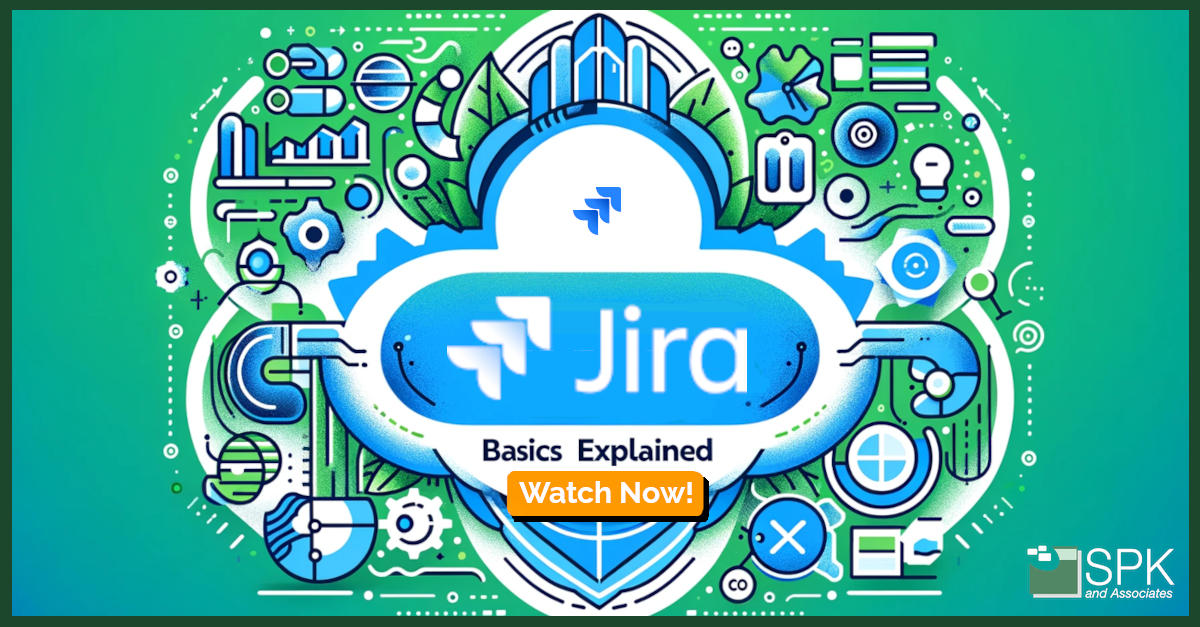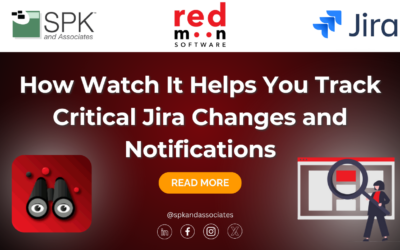Welcome to “Jira Basics Explained.” My name is Michael Roberts, Vice President at SPK and Associates. If you’re looking for a video that will help you understand the basics of Jira as your project management tool, you’ve come to the right place. In this video, we’ll cover some of the basics and maybe some of the hidden gems too—some of the powerful aspects of Jira.
What is Jira?
Jira is an advanced project management tool designed for teams to optimize project planning, tracking, and reporting. The great thing about Jira is that you can get it for free for up to 10 users, which is ideal for small and innovative teams trying to figure out if it’s the right tool for them. If you’re new to project management, you may want to consider a simpler tool such as Trello. Trello and Jira are both from Atlassian and have free tiers, so you can try them out. We’ll also talk a little bit about the definition of each of the Jira tools, but the most common is Jira Software, which is used for software development. Atlassian has other Jira products that are for any team, not just software development.
Let’s talk about the basics
The basic packages or different types of Jira. In this case, Jira Software is the original project management tool that was built for software teams to track bugs, add features and functionality to their software, and provide tracking and visibility for others who may not be directly involved in the development process. It integrates easily with lots of modern software development tools and has a lot of features that companies are looking for today when they’re developing software.
Jira Service Management
Often called JSM, is an ITSM tool that is used to handle service test requests, approvals, and more. Traditionally, it’s used for IT support ticketing, but it can be used for non-IT uses like marketing, HR, or legal teams to have a service desk and a service request system.
Jira Work Management
is a newer tool from Atlassian that takes the power of Jira Software features but removes the traditional software components to focus on more business-oriented teams. So teams like marketing, HR, legal, and other business operations teams can track their tasks and projects.
Common Features
Now let’s talk about some of the common features between all of these Jira products. At its core, Jira is a platform for tracking and managing work. You can create a project and then create tasks within that project. You can even create subtasks to those tasks that have been created. The task or subtask can be assigned to individuals, assigned a due date, and have comments for collaboration between teams. You can also attach files and link to each other’s tasks so that you know what work relates to each other.
The Power of Jira
I like to talk about the power of Jira. I always say there are four things that separate Jira from other project management tools. Tools like Trello, Asana, Monday.com, and others are great for tracking things, but they lack the power and scale of these four things. That’s why Jira has a huge market share in the team collaboration market. Let’s talk about these four powerful features.
Custom Fields
First is custom fields. They’re very valuable because you can add data to your project that maps to the way you work and the passing of information from individual to individual. A few examples of common fields are things like a requested date to track when someone made a feature request or a category field. You can also pull information from your company’s active directory, such as team, department, or location, to have those fields automatically populated.
Custom Workflows
Next is custom workflows. They are the engine of Jira and allow the company to configure Jira to map to the way they already work. For example, a simple workflow diagram could be something like “To Do,” “In Progress,” and “Done.” A custom workflow for your company that you may be using could be something like “To-Do,” “Started,” “Ready for Review,” “Blocked,” “Ready to Deploy,” and “Completed.” Jira gives you the features to create your own custom workflow to map to the way your organization works.
Dashboards
Dashboards allow users to see how your team is doing and make informed decisions on where to focus their efforts. You can track things like the percentage of the project that is completed, whether things are on track to be completed on time, what work remains to be done, and who is assigned to that work.
Automations
are without a doubt the most powerful part of Jira. Automations offer a powerful toolset that automates repetitive processes and streamlines operations without needing to code. The automations can trigger a wide range of actions based on specific conditions, ensuring that projects move forward efficiently and consistently. From updating issues and fields to integrating with external tools, Jira’s automation capabilities significantly reduce manual effort, allowing teams to focus on more strategic tasks.
One of the benefits of Jira is that you can integrate it with a wide variety of other technologies. In the Atlassian marketplace, there are thousands of tools provided by Atlassian partners that enhance Jira and allow it to integrate or interact with hundreds of other tools or extend the functionality of Jira to provide additional features for various use cases. So Jira out of the box may only be 10% of your overall Jira ecosystem when things are built out correctly.
To get Jira for up to 10 users for free, you can sign up at atlassian.com. The URL on the screen is the location where you can start a free trial and a free site. Just remember, Jira can make you feel all of these emotions; it is a powerful, powerful product.
SPK and Associates is an Atlassian Gold Solution Partner and helps companies get the most out of their Atlassian investment. If you’re new to Jira and you want some of the benefits described in this video but aren’t sure where to get most of it, visit spkaa.com and contact our team.
Thanks for watching, and be sure to subscribe for more content like this!





